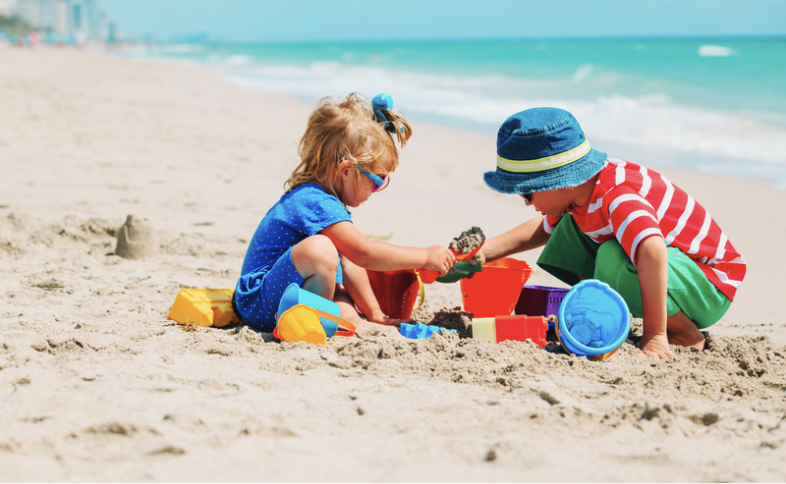With school ending and summer beginning, many families will be taking vacations, starting summer camps, or changing up their routines. Here are some ways to support your child’s speech and language development over the summer:
One of my favorite ways to develop or enhance speech and language skills is to talk about what has happened, what is happening, or what will happen. The change in routine brings a great opportunity for this talk about past, present, and future. Many of our clients thrive on routine, and a change in that routine can be upsetting. Preparing them for what will happen can make things easier.
- Depending on the child’s level, it may be beneficial to create a picture book or story to prepare them for a new activity. If they’re starting a new summer camp, see if the camp can send pictures of the facilities and/or activities, or do a visit ahead of time and take pictures yourself that you can look at and talk about with your child. If you’re taking a vacation, you may look at pictures of the AirBNB or hotel along with your child to give them a mental picture of the environment.
- While on vacation or doing a new activity, like a trip to the zoo or a museum, take pictures of you and your child that you can look at and talk about. You can model present-tense verbs while doing the activity (e.g., I’m looking at the lion. We’re building a rocket ship.), and then past-tense verbs while looking at the pictures (e.g., You saw a lion. The lion roared.).

During summer time “down time”, try out some new activities to spark your child’s interest. Here are some ideas:
- Water Play
- Younger children may enjoy a water table or baby pool, with supervision. They can request “more” or “water”, bath toys, or bubbles. You can practice taking turns pouring or splashing.
- Older children may like finding toys you’ve frozen in ice, experimenting with colored bubbles, painting with water on a sidewalk or outside wall, or throwing water balloons. You can work on predicting what will happen, using irregular past-tense verbs (e.g., found, threw), or even making up a story about the paintings they made.
- Camping
- some families may want to take a camping trip, while others prefer to stay close to home. Either way, you can simulate a camping experience. You can set up a tent at a campsite, at home in the backyard, or even in the house.
- Practice new “camping” vocabulary: tent, canteen, sleeping bag, flashlight, binoculars. Younger children may want to experiment with light while in the tent or outside, with the flashlight on or off. It’s a perfect time to try out shadow puppets.
- Make “s’mores”, either over a campfire or just in the microwave. Use adjectives to describe them (e.g., crunchy, gooey, sweet). Watch and describe what happens as the marshmallow cooks (“small”, “big”).
We hope everyone has a safe and fun summer!

0 Comments